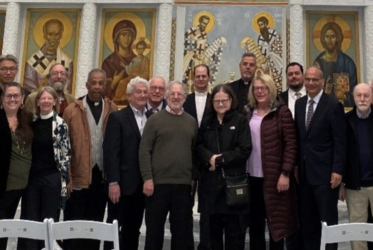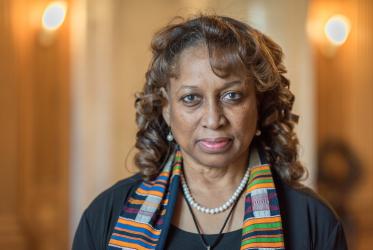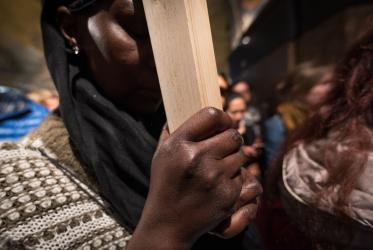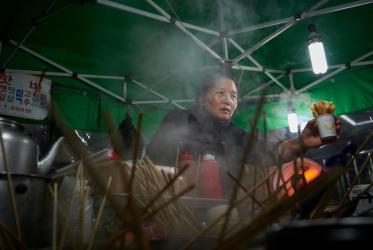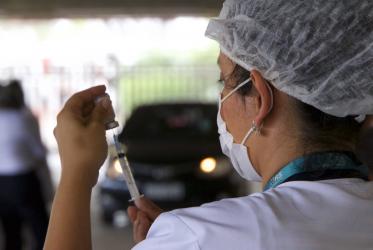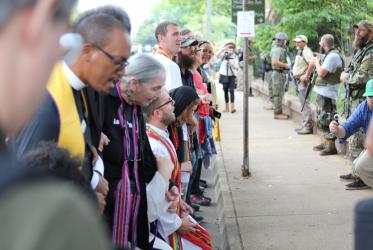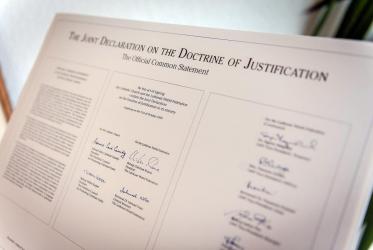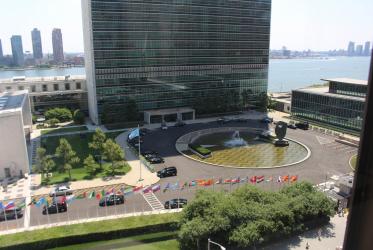Displaying 1 - 20 of 25
Rev. Dr Angelique Walker-Smith receives Figel Ecumenism Award
25 February 2022
How do churches address racism, really?
15 February 2022
Roundtable for Peace on the Korean Peninsula convenes in Atlanta
14 November 2018
Is there a faith imperative for gender justice?
20 March 2018
WCC to co-host public event on migration and displacement at UN
17 January 2018
International affairs facilitator reflects on pilgrimage
31 March 2016
Religious leaders as agents of peace in the Americas
02 March 2016

